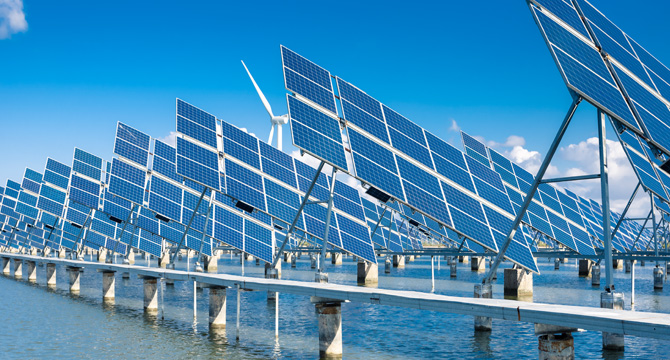Nevada Legislature Approves Bills to Encourage Distributed Generation and Community Solar Projects

The Nevada legislature took several actions in the last days of its 2017 legislative session to reopen the state to the development of and investment in distributed generation and community solar projects. While Nevada has the fourth most solar capacity installed of any state, most of the recent development has been of utility-scale projects after the Public Utility Commission of Nevada changed its net metering policy in 2015 to cut the rate paid by utilities for electricity produced by distributed generation systems to wholesale, rather than retail, rates.
Responding directly to industry pressure and the slowdown in rooftop and other distributed generation solar development since 2015, A.B. 405 provides that rooftop solar customers will initially be compensated for net metering at 95 percent of the retail rate. Each time an additional 80 megawatts of rooftop solar is installed in the state, this percentage will decrease for subsequent installations, but will not go below 75 percent of the retail rate. This represents a significant increase in rates from the current wholesale rate structure, though Nevada may remain less attractive for many developers and investors compared to states that require utilities to pay customers full retail rates for net metering projects. Customers will be able to lock in their rates for twenty years, which will make investments in the first 80 megawatts of installed capacity particularly attractive to financing parties.
Following the success and heavy development of community solar projects in other states, including Massachusetts and Minnesota, the Nevada legislature also passed S.B.392, which governs and promotes the development of community solar gardens in the state. As in other states, there is a variety of requirements and limits on the capacity, ownership and subscription of community solar gardens. For example, the legislation limits community solar gardens to a nameplate capacity of twelve megawatts or less and requires that they have at least twenty subscribers. Subscribers can be any utility customer and may subscribe for up to 40 percent of the total capacity of an individual community solar garden. Following on A.B. 405, utilities in the state will be required to purchase any excess generation from community solar gardens. A notable requirement of the Nevada legislation is that at least ten percent of the capacity of each solar garden must be available for use by low-income residents or those providing services to low-income residents. Additional requirements will likely be promulgated by the Nevada Public Utilities Commission after the bill is signed into law.
Both of these bills go to Governor Brian Sandoval next, who has indicated he plans to sign them.
